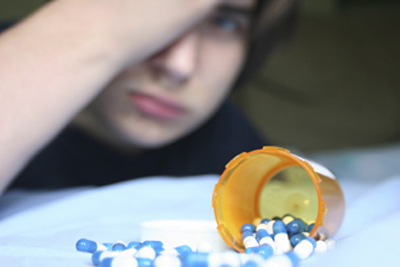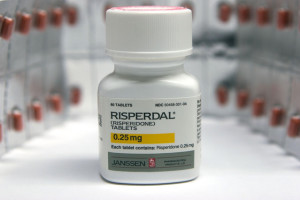By Kelly Patricia O’Meara
April 28, 2015
Australian psychiatrist Patrick McGorry, who caused an international furor over advocating drugging adolescents with antipsychotics to “prevent” them becoming psychotic, has, again, come under scrutiny for the recent revelation of a whopping 75% increase in Western Australian children on antipsychotics between 2009 and 2013. The Australian & New Zealand Journal of Psychiatry also reported a 45% increase in the number of atypical antipsychotic prescriptions to children aged 3 to 9 years and a 53% increase in 10 to 14 year olds.
Citizens Commission on Human Rights (CCHR) Australia questions whether Prof. McGorry’s advocacy of antipsychotics influenced the soaring prescription rates, similar to those attributed to shamed Harvard University psychiatrist Joseph Biederman’s work in the United States.
Both psychiatrists conducted research on the antipsychotic Risperdal (risperidone) manufactured by Johnson & Johnson’s (J&J) subsidiary Janssen Pharmaceuticals and both psychiatrists have children or youth research centers that have been funded by Janssen.
- In 2012, risperidone was the most prescribed antipsychotic in Australia for children 3–9 year olds and 10–14 year olds (90.1% and 72.6% of antipsychotic scripts dispensed, respectively).
- Internal J&J records, made public in a court case, showed the company had intended to use its connection with Biederman to increase Risperdal sales.
CCHR wrote to the Australian Department of Health asking it to investigate antipsychotic use in children and potential conflicts of interests with those doctors prescribing the drugs. CCHR is hoping to determine the numbers of male children prescribed Risperdal/risperidone that may have developed gynecomastia (male breast growth). In February, a Pennsylvania jury awarded $2.5 million to the family of boy who was prescribed Risperdal for four years to treat autism and developed 46 DD breasts.
- In response to that case, CCHR Australia launched a campaign to warn parents about risperidone risks.
- In clinical trials of 1,885 children and adolescents, gynecomastia was reported in 2.3% of Risperdal-taking patients. Last year, the Journal of Clinical Psychopharmacy investigated the histories of 8,285 men with gynecomastia, finding that males who took Risperdal were up to 69% more likely to develop the condition.
- A 2014 study found that of those aged 10-14 prescribed antipsychotics in Australia, 78% were males.
McGorry’s Strong Links to the U.S.
-

Australian psychiatrist Patrick McGorry caused an international furor over advocating drugging adolescents with antipsychotics to “prevent” them becoming psychotic.
McGorry is a regular speaker at the American Psychiatric Association’s annual conference and is an associate of former APA president Jeffrey Lieberman from Columbia University. In 1997, McGorry established the International Early Psychosis Association (IEPA). In 2014, Vice President was Jeffrey Lieberman.
- IEPA’s conferences received funding from Janssen, AstraZenecca, Eli Lilly, Pfizer, Bristol-Myers Squibb and the U.S. psycho-pharma front group National Alliance on Mental Illness (NAMI).
- McGorry has been on Advisory Board of the UCLA Center for the Assessment and Prevention of Prodromal States (CAPPS). “Prodromal” is a term psychiatrists use to arbitrarily describe symptoms that “may precede the onset of a mental illness.” This justifies drugging someone before they’re “disordered.”
- Lieberman engaged McGorry as a consultant to RAISE (Recovery after an Initial Schizophrenia Episode), a U.S. National Institute of Mental Health (NIMH) multisite study for first episode psychosis (FEP). McGorry is acknowledged in the study for “generously sharing resources developed in Australia to support broad implementation” of treatment for FEP. NIMH awarded $9.9 million for the study with a potential extension of $21.3 million.
-

The Australian & New Zealand Journal of Psychiatry reported a 45% increase in the number of atypical antipsychotic prescriptions to children aged 3 to 9 years and a 53% increase in 10 to 14 year olds.
Thomas Insel, head of NIMH, lauds McGorry’s “early intervention” program for “at risk” kids and adults. Insel wants more early intervention that he calls “pre-emptive psychiatry.”
- In 2013 NAMI, which has received tens of millions of dollars from pharmaceutical companies, honored McGorry for his “clinical service” to youths. That same year, Janssen gave NAMI $375,000 and J&J provided an additional $130,000.
- Janssen paid U.S. psychiatrists to develop psychosis “treatment guidelines” (recommending Risperdal as a first-line treatment) and was advised to have an advisory panel established that included NAMI representatives. J&J was urged to work with such patient advocacy groups as the NAMI to expand mental health insurance benefits and, thus, gain more of a market for Risperdal.
Potential Use of Youths as Research Guineapigs
McGorry and colleague, psychiatrist Ian Hickie, from the University of Sydney’s Brain and Mind Research Institute, are the co-founders of the national headspace: Youth Mental Health Centers in Australia which treat 12-25 year olds. The 2010/11 budget for headspace was more than AUS$19 million with an additional $39 million in 2011/12. Researchers believe that headspace centers are “becoming ‘clinical laboratories’ for applied research.”
CCHR is calling on the federal health department to determine how many youths are prescribed antipsychotics through headspace. Antipsychotics can cause diabetes, pancreatitis, white cell disorders, convulsions and fatal neuroleptic malignant syndrome (tissue life-threatening neurological disorder which includes symptoms such as high fever, stupor, and muscle rigidity), and the investigation should focus on prescriber conflicts of interest, which may be contributing to high rates of children and adolescents being put on risperidone or other antipsychotics.
Kelly Patricia O’Meara is an award-winning former investigative reporter for the Washington Times’ Insight Magazine, penning dozens of articles exposing the fraud of psychiatric diagnosis and the dangers of the psychiatric drugs—including her ground-breaking 1999 cover story, “Guns & Doses,” exposing the link between psychiatric drugs and acts of senseless violence. She is also the author of the highly acclaimed book, Psyched Out: How Psychiatry Sells Mental Illness and Pushes Pills that Kill. Prior to working as an investigative journalist, O’Meara spent sixteen years on Capitol Hill as a congressional staffer to four Members of Congress. She holds a B.S. in Political Science from the University of Maryland.





SHARE YOUR STORY/COMMENT